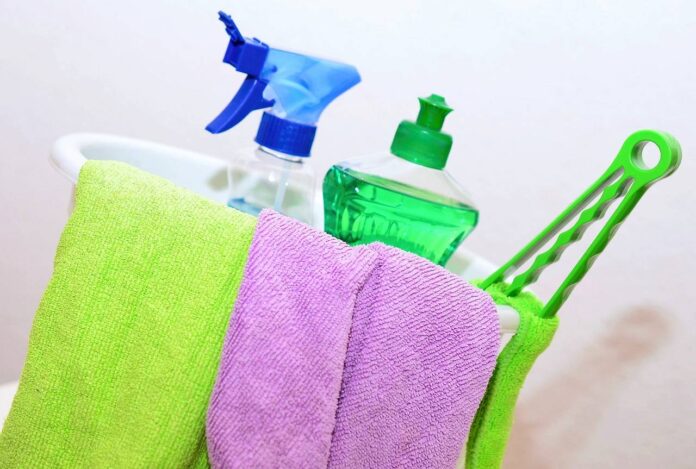In a world flooded with cleaning products promising miracles, deciphering the truth behind their labels can feel like navigating a labyrinth. Consumers are bombarded with flashy claims, enticing promises, and seemingly impressive credentials. However, beneath the glitzy surface lies a landscape fraught with misinformation and ambiguity.
The Rise of Greenwashing: Beware of Deceptive Claims
What is Greenwashing?
Greenwashing is the practice of conveying a false impression or providing misleading information about the environmental benefits of a product, service, or company. In the realm of cleaning supplies, this often manifests as vague claims of being “eco-friendly” or “natural,” without substantial evidence to support such assertions.
How to Spot Greenwashing Tactics
Ambiguous Terminology
Many cleaning product labels feature terms like “green,” “eco-friendly,” or “natural,” yet lack clarity on what these terms actually entail. Without defined standards or certifications, these labels hold little weight and can be used as mere marketing ploys to attract environmentally conscious consumers.
Lack of Certifications
Genuine eco-friendly cleaning products often carry certifications from reputable organisations such as the Ecolabel, Green Seal, or EPA Safer Choice. These certifications undergo rigorous testing and evaluation to ensure that products meet specific environmental standards. In contrast, products lacking such certifications may not deliver on their purported eco-friendly claims.
Deciphering Ingredient Lists: The Devil is in the Details
Understanding Ingredients
Consumers often overlook the significance of scrutinising cleaning product ingredient lists. However, delving into these lists can unveil crucial insights into a product’s safety, efficacy, and environmental impact. Key ingredients to watch out for include:
- Phthalates: Linked to hormone disruption and respiratory issues.
- Parabens: Suspected carcinogens that can disrupt hormone function.
- Triclosan: Associated with antibiotic resistance and environmental harm.
Transparency in Ingredient Disclosure
Reputable cleaning product manufacturers prioritise transparency by providing detailed ingredient lists on their labels or websites. This transparency empowers consumers to make informed choices and avoid potentially harmful chemicals.
Debunking Common Myths: Setting the Record Straight
Myth: “Natural” Equals Safe
While the term “natural” may evoke images of pristine landscapes and pure ingredients, it does not necessarily equate to safety. Many naturally occurring substances can still pose risks, especially when used in concentrated or unregulated formulations. Furthermore, the lack of regulatory oversight for the term “natural” allows manufacturers to exploit this ambiguity for marketing purposes.
Myth: “Chemical-Free” Products Exist
The notion of a “chemical-free” cleaning product is inherently flawed. All matter, including natural substances, consists of chemicals. Instead of chasing an unattainable ideal, consumers should focus on choosing products with minimal hazardous chemicals and transparent ingredient lists.
Making Informed Choices: Empowering Consumers
Seeking Reliable Sources
Navigating the maze of cleaning product claims requires arming oneself with knowledge and seeking information from reliable sources. Reputable environmental organisations, consumer advocacy groups, and government agencies offer valuable resources and guidance on selecting safe and sustainable cleaning products.
Prioritising Health and Sustainability
When evaluating cleaning products, consumers should prioritise health, safety, and sustainability over flashy marketing claims. By choosing products with certified eco-labels, transparent ingredient lists, and minimal environmental impact, consumers can make a tangible difference in protecting both their health and the planet.
Conclusion
In a marketplace inundated with misleading labels and greenwashing tactics, consumers must exercise vigilance and discernment when selecting cleaning products. By prioritising transparency, scrutinising ingredient lists, and seeking reliable information, consumers can make informed choices that promote both personal well-being and environmental sustainability.
Help keep news FREE for our readers
Supporting your local community newspaper/online news outlet is crucial now more than ever. If you believe in independent journalism, then consider making a valuable contribution by making a one-time or monthly donation. We operate in rural areas where providing unbiased news can be challenging. Read More About Supporting The West Wales Chronicle

























